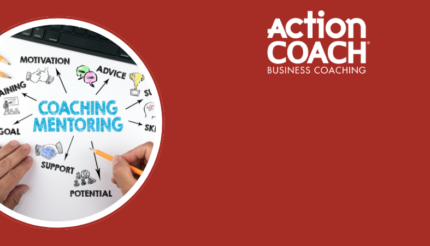Welcome to our definitive guide to business coaching. Business coaching has emerged as a transformative force, empowering individuals and organisations to navigate challenges, optimise performance, and realise their full potential. In this comprehensive guide, we delve deeper into everything you need to know about business coaching, how it will benefit you and your business and how to find the right coach for you.
What is Business Coaching?
Business Coaching Definition
Business coaching is a collaborative process designed to improve individual and organisational performance, encourage growth, and achieve sustainable success. Unlike traditional consulting, business coaching focuses on empowering you to discover your solutions and unlock your potential.
Difference between Business Coaching and Mentoring
These are two terms that are easily and often confused. While both involve a supportive relationship, mentoring often involves a more experienced individual imparting wisdom based on personal experience. Business coaching, on the other hand, encourages self-discovery, skill development, and strategic thinking to improve a range of business metrics. These metrics can range from quantitative (measurable), such as gross income or profitability, to qualitative (subjective), such as an improved work-life balance or reduction in stress.
What Does a Business Coach Do?
A business coach plays a multifaceted role, serving as a strategist, motivator, and accountability partner. A business coach might help with any of the following:
- Business Planning
- Define or refine their brand positioning or ideal customer persona (ICP)
- Assess their current business situation and identify areas for improvement
- Develop a business strategy and/or an action plan. Articulate a business vision, set long-term objectives, and designate short-term SMART goals
- Provide tactical or problem-focused advice to solve specific challenges
- Help the business owner or CEO maximise their business impact through lifestyle and mindset changes
- Act as an independent adviser and confidential sounding board
Why is Coaching Important in Your Business?
Coaching is important for all businesses, with small enterprises and SMEs benefiting from it for distinct reasons.
Small business owners, often immersed in their product or service, may lack comprehensive business knowledge. Managing finances, driving revenue, effective hiring, and scaling can pose challenges. Business coaching serves as a shortcut, offering expert advice and preventing potential pitfalls.
CEOs of SMEs and enterprises already possess fundamental business skills. Business coaches provide an independent perspective, focusing on systemisation and lean operations to enhance competitiveness.
Regardless of size, business coaches function beyond consultants; they serve as accountability partners, sounding boards, and invaluable sources of support. In the often isolating realm of business leadership, a coach offers guidance and encouragement unmatched by others.
When Do You Need a Business Coach?
Recognising the need for a business coach is a pivotal step for entrepreneurs and business leaders. Whether you’re facing challenges, aiming for rapid growth, or seeking to enhance your leadership skills, a business coach can provide valuable insights and guidance.
To work out whether you need a coach sooner rather than later, ask yourself these six questions:
- Am I lacking clear goals (where I want to go), a clear business strategy (the path I’ll take to get there), or a clear business plan (the steps I’ll take to execute my strategy)?
- Am I feeling stressed, overwhelmed, or struggling to see past next week?
- Do I want to grow my business faster?
- Could I benefit from confidential advice from someone who’s done it before?
- Could I benefit from having someone look objectively at my business to help me spot opportunities and weaknesses?
- Do I need an accountability partner who keeps me focused on my goals?
Benefits of Business Coaching
Setting Your Vision and Goals:
Business coaching places a strong emphasis on setting a clear vision and measurable goals. Coaches collaborate with clients to define aspirations and outline actionable steps to achieve them. Through a structured process, businesses gain clarity on their purpose and direction.
In the initial phases, coaches conduct thorough assessments, examining the current state of the business, identifying strengths and weaknesses, and aligning goals with the overarching vision. This process involves a deep dive into the core values of the business, ensuring that the vision is not only ambitious but also rooted in the company’s identity.
Once the vision is established, ActionCOACH coaches guide clients in breaking down long-term goals into manageable, achievable steps. This detailed goal-setting process involves creating SMART (Specific, Measurable, Achievable, Relevant, Time-bound) objectives, ensuring that each goal is strategic, realistic, and has a clear timeline for achievement.
Business Planning
Effective business planning is a cornerstone of success. A business coach provides tools and frameworks to develop comprehensive business plans that align with your vision and guide day-to-day operations. This isn’t just about creating a document; it’s about developing a dynamic roadmap that evolves with the business.
Coaches work collaboratively with clients to assess market conditions, analyse competitors, and identify opportunities and threats, gaining a holistic understanding of their position in the market. Businesses are dynamic, so it is important to keep in mind that your business plan needs to be flexible to adapt to changing circumstances.
Financial planning is a crucial aspect covered in business coaching. Coaches assist in creating realistic financial projections, managing cash flow, and optimising budgeting processes. This proactive approach ensures that businesses are well-prepared for financial challenges and can make informed decisions to achieve long-term sustainability.
Improve Your Profitability
Zero in on strategies to boost profitability. From pricing optimisation to cost management and identifying new revenue streams, coaches work hand-in-hand with clients to enhance the financial health of their businesses. The focus extends beyond short-term gains, aiming for sustained profitability.
Your coach will start with a trend analysis to assess how profitable your business is over time, before moving on to review other key statistics like gross revenue pipeline, win/loss ratio, customer acquisition cost (CAC), CAC payback period, customer churn rate, profit margin, and OpEx (operating expenses, broken down into fixed expenses and variable expenses).
Once the things holding you back from profitability are identified, your coach will develop an action plan to get your business back on track.
Be More Efficient
Streamlining processes and increasing efficiency are essential for sustainable growth. Analysis to identify bottlenecks, implement best practices, and enhance overall operational efficiency. This isn’t just about cutting costs; it’s about creating a lean, agile organisation that can adapt to change and capitalise on opportunities.
Coaches employ process mapping and analysis to identify inefficiencies in workflows. This involves breaking down complex processes into manageable steps, identifying redundancies, and streamlining communication channels. The goal is to create a more efficient and responsive organisational structure.
Technology plays a crucial role in efficiency improvement. Coaches guide businesses in adopting and integrating technologies that align with their objectives. Whether it’s implementing project management software, automating routine tasks, or leveraging data analytics, the focus is on harnessing technology to enhance productivity.
Employee engagement is another key element in improving efficiency. Coaches work with clients to create a positive work culture, foster open communication, and provide professional development opportunities. Engaged employees are more likely to be committed to the organisation’s goals, resulting in increased productivity and efficiency.
Support Your Teams
Effective leadership extends to supporting and developing teams. Your coach can help address team dynamics, communication, and collaboration to foster a positive and productive work environment. Engaged and motivated teams are not only more productive but also contribute significantly to the overall success and resilience of a business.
Leadership development is a core aspect of team support, assisting business leaders in honing their leadership skills, fostering a culture of trust, and leading by example. This involves personalised coaching sessions, workshops, and ongoing support to navigate the complexities of leadership.
Communication strategies are crucial for effective team collaboration. Coaches guide businesses in implementing clear and transparent communication channels, ensuring that information flows seamlessly across departments. This includes regular team meetings, project updates, and feedback mechanisms that create a collaborative work environment.
Improve Your Work-Life Balance
Achieving work-life balance is a common challenge for entrepreneurs. In building your dream it can be easy to fall into working harder and longer than your 9-5 employees. Prioritising tasks, delegating effectively, and creating a sustainable work-life equilibrium helps to ensure that business leaders not only succeed in their work environment but also enjoy a fulfilling personal life.
Time management is a foundational element of achieving work-life balance. Coaches work with clients to identify time-wasting activities, prioritise tasks, and create effective schedules. This involves implementing time-tracking tools, setting realistic deadlines, and establishing boundaries between work and personal life.
Delegation is a crucial skill that contributes to both business efficiency and personal well-being. Coaches guide business leaders in identifying tasks that can be delegated, developing a delegation strategy, and empowering team members to take on responsibilities. This strategic approach allows leaders to focus on high-priority activities and maintain a healthier work-life balance.
Stress management is an integral component of work-life balance. Coaches provide tools and techniques to cope with stress, whether it’s through mindfulness practices, time-off strategies, or establishing a supportive work environment. This emphasis on mental well-being ensures that business leaders can sustain their performance over the long term.
Be Accountable
Accountability is a key element of any business coaching relationship. Coaches guide clients in setting targets, tracking progress, and staying committed to their goals. The accountability factor ensures that businesses stay on course and achieve the desired outcomes.
Setting clear expectations is the foundation of accountability. Coaches work with clients to define specific, measurable, and time-bound targets. This involves breaking down overarching goals into smaller, manageable tasks with clear deadlines. The result is a roadmap that provides a step-by-step guide to success.
Regular progress reviews are integral to the accountability process. Coaches conduct structured reviews to assess achievements, identify challenges, and adjust strategies as needed. This ongoing dialogue ensures that businesses remain agile, responsive, and capable of adapting to changing circumstances.
The accountability partnership extends beyond the individual leader to the entire organisation. Coaches guide businesses in creating a culture of accountability, where every team member is empowered to take ownership of their responsibilities. This collective commitment to accountability fosters a high-performance culture that drives overall success.
Who is Business Coaching For?
Business coaching is a versatile tool applicable to various industries and professional levels. ActionCOACH tailors its methodologies to meet the unique needs of different sectors.
Small Business Coaching
Small businesses benefit significantly from coaching, and is the most common type of business coaching. By working with a coach, you gain access to strategies to navigate challenges, scale efficiently, and build a solid foundation for sustained success. The focus is on developing resilience and adaptability in a rapidly changing business landscape.
Small businesses often get a lot of value from business coaching because of the way they evolve. In a typical small business, the owner starts on the tools, working closely with their product or service and growing over time. They normally supply a product/service that has built-in market demand, and as a result owners often aren’t experienced business leaders, having learnt ‘on the job’.
Executive Coaching
Executives and senior leaders often encounter unique challenges in leadership, decision-making, and strategic planning. Focusing on leadership development, aligning personal and professional goals, and ensuring executives are equipped to lead their organisations effectively.
Executive coaching is a highly personalised journey that begins with a comprehensive assessment of leadership strengths, areas for improvement, and career aspirations. This tailored approach empowers executives to lead with confidence and drive organisational success.
Sales Team Training
Sales teams play a critical role in driving revenue growth. Specialised coaching to improve sales skills, enhance communication, and develop strategies that resonate with the target audience results in a more effective and motivated sales force.
Sales coaching is a dynamic process that starts with understanding the unique challenges of the sales team. From honing negotiation skills to mastering the art of relationship-building, sales coaching transforms teams into revenue-generating powerhouses.
Types of Business Coaching
1-1 Coaching
One-on-One coaching provides a personalised experience, addressing specific challenges and goals unique to the client, accelerating results, making a real difference to your lifestyle and adding value to your business.
In 1-1 coaching, the coach becomes a trusted partner in the client’s journey. This format allows for deep exploration of personal and professional goals, providing a confidential space for reflection and growth. The coach serves as a sounding board, offering insights, guidance, and actionable strategies that propel the client towards their aspirations.
Group Coaching
Group coaching fosters collaboration and shared learning by creating a supportive community of like-minded individuals, allowing for collective problem-solving, knowledge sharing, and mutual support. This format encourages diverse perspectives and accelerates the learning process.
Group coaching is a dynamic forum where participants benefit not only from the coach’s expertise but also from the collective wisdom of the group. This format creates a sense of camaraderie, fostering an environment where participants are motivated to push their boundaries and achieve collective success.
Business Planning
Specialised coaching in business planning ensures a strategic roadmap aligned with your vision to develop actionable plans that not only set the direction but also adapt to changing circumstances. This dynamic approach ensures businesses stay agile in a dynamic market.
Business planning coaching involves an in-depth analysis of market trends, competitive landscapes, and internal capabilities. Through this you develop a comprehensive understanding of their business environment, identifying key drivers and potential challenges. This strategic foresight informs the creation of a flexible business plan that serves as a living document, guiding decision-making and adaptation.
Employee Engagement
Coaching extends to enhancing employee engagement. Employee engagement coaching involves assessing the current state of employee satisfaction, identifying areas for improvement, and implementing strategies to enhance the overall workplace experience. From this, coaching assists leaders in creating a positive work culture, fostering open communication, and providing professional development opportunities. Engaged employees are more likely to be committed to the organisation’s goals, resulting in increased productivity and efficiency.
What to Look for in a Business Coach?
Choosing a business coach can be challenging. Start by considering costs—compile a list of coaches within your budget, eliminating those exceeding it. Next, assess the target audience of each coach; choose one aligned with your business type.
Now, focus on social proof. Examine testimonials and reviews to identify coaches who deliver results and have a proven business background. Look for founders with successful exits or C-suite executives.
Lastly, book free consultations with remaining coaches to evaluate personality fit. Many services offer 15- or 30-minute sessions.
What Qualifies Someone to Be a Business Coach?
A proficient business coach typically possesses:
- Business experience, often at a managerial or executive level.
- A track record of growing or stabilising businesses.
- Strong communication skills, including the ability to hold clients accountable.
- A coaching approach adaptable to various industries, unless specialised.
To evaluate coaches, examine their websites and social media for client feedback. While detailed testimonials may be scarce, a credible coach should have at least five or six.
How much does a business coach cost?
Investment in a business coach can range on a variety of factors. rates vary widely based on the individual track record, experience, and demand for a particular coach – and the coaching package that you feel best suits your business.
How to Measure Success
Measuring the success of business coaching involves both qualitative and quantitative assessments. ActionCOACH employs a results-driven approach, tracking key performance indicators, assessing goal attainment, and ensuring sustained positive change. Success is evident in enhanced leadership skills, improved profitability, and the overall growth of the business.
Key Performance Indicators (KPIs)
Coaches work with clients to identify and track key performance indicators that align with their goals. These KPIs serve as benchmarks for success, providing measurable metrics to assess progress. Whether it’s revenue growth, customer satisfaction scores, or employee engagement levels, the coach and client collaboratively establish KPIs that reflect the desired outcomes.
Goal Attainment
The achievement of goals is a fundamental measure of coaching success. Coaches guide clients in setting realistic and ambitious goals, breaking them down into manageable steps, and tracking progress regularly. Goal attainment is not just about reaching the destination; it’s about the journey of continuous improvement and learning that fosters lasting success.
Sustained Positive Change
True success in business coaching is marked by sustained positive changes, such as creating lasting transformations in the mindset, strategies, and operations of the business. Coaches ensure that the positive changes implemented during the coaching journey become embedded in the organisational culture, driving ongoing success beyond the coaching relationship.
Business coaching is not just a valuable investment but something every business needs. As we accept advice from teachers, family and friends, business coaches are there to help save us from learning through failure.
Whether you’re a small business owner, a trades professional, an accountant, an executive leader, or a sales team, the various types of coaching, including 1-1 coaching, group coaching, business planning, and employee engagement coaching, ensure that there is a personalised approach for every business.





